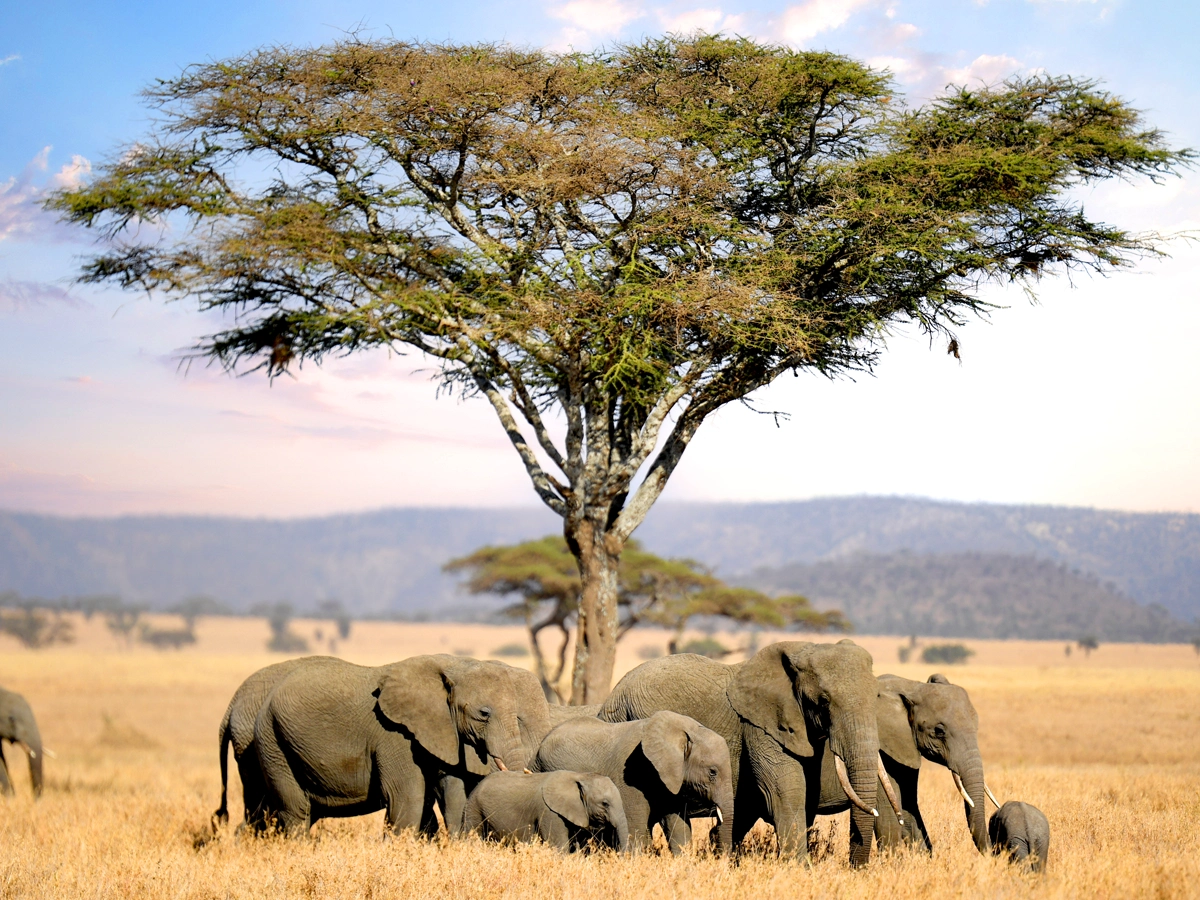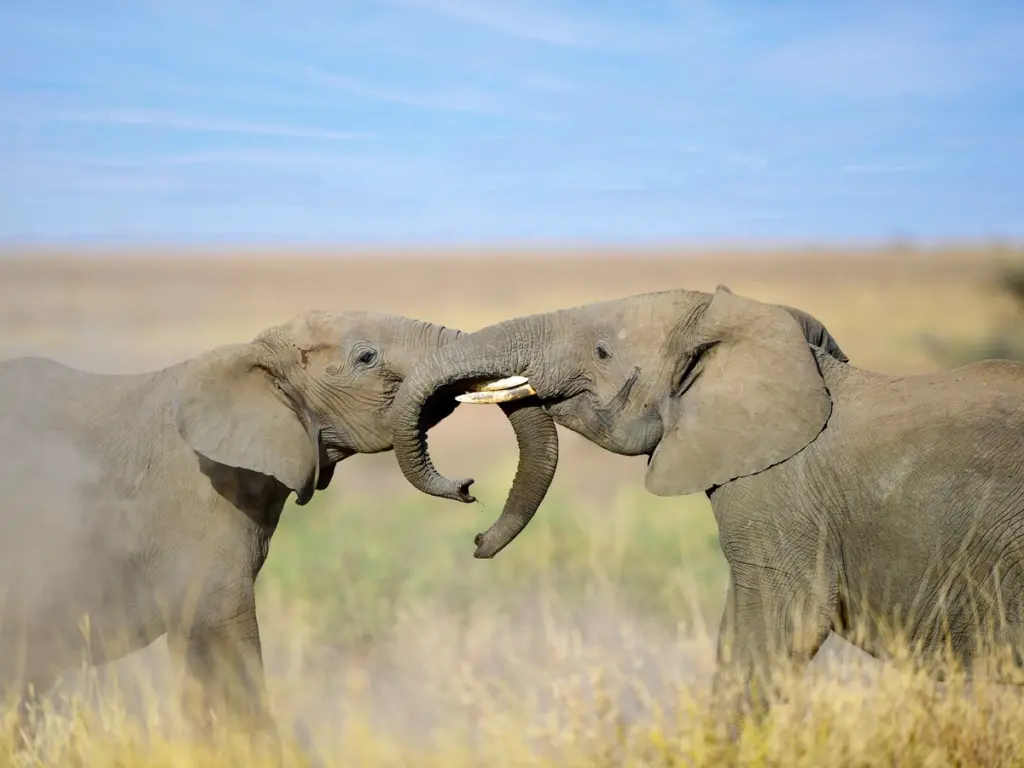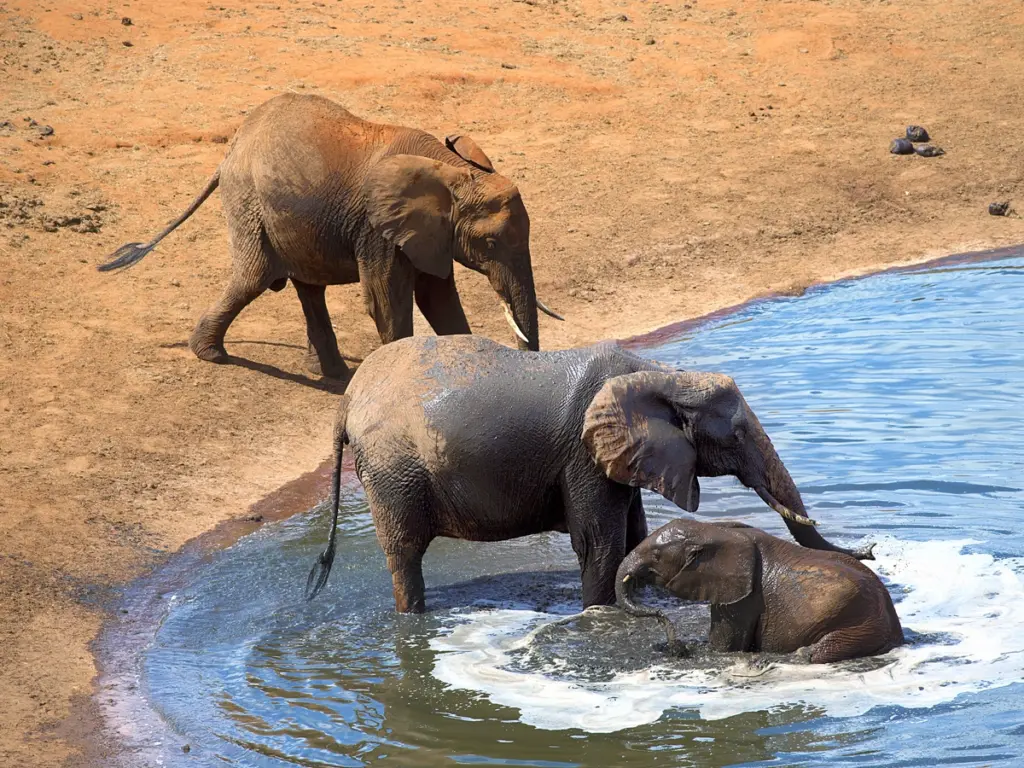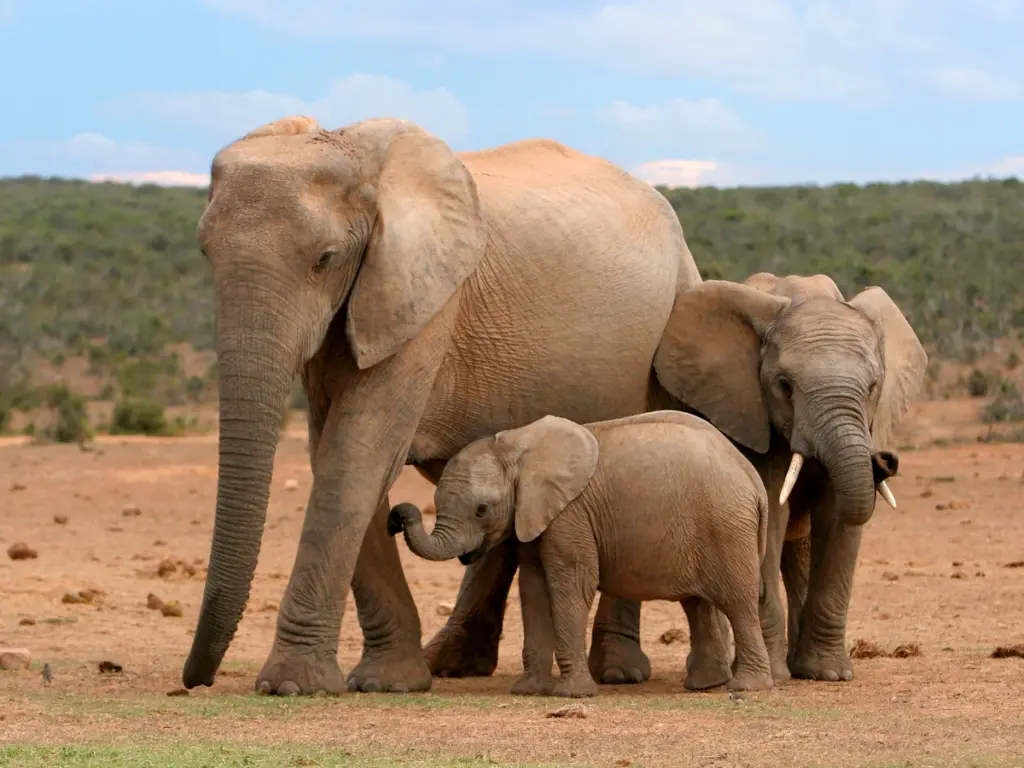
When we think of elephants, we often envision their majestic size and incredible intelligence. Did you know these gentle giants have a social structure that includes naming each other? A study published in Nature Ecology & Evolution revealed that elephants form deep bonds and communicate in nuanced ways, much like humans, often using unique identifiers for their friends and family.

Elephant herds are matriarchal, typically led by the oldest and wisest female, known as the matriarch. This leadership structure ensures that the knowledge and experience of the oldest members guide the herd through challenges such as finding water and avoiding predators. Within these herds, bonds between individuals are incredibly strong. Elephants exhibit behaviors that indicate deep emotional connections, such as touching each other with their trunks, trumpeting in unison, and even shedding tears.
But how do these enormous animals maintain such intricate social networks? The answer lies in their remarkable memory and sophisticated communication methods.
Elephants communicate through a variety of sounds, from the low-frequency rumbles that can travel through the ground over long distances to the high-pitched trumpets that signal excitement or distress. These vocalizations are more than mere sounds; they are part of a complex language that conveys detailed information about the caller’s identity, emotional state, and intentions.
Studies have shown that elephants can distinguish between the voices of hundreds of different individuals, a skill that is crucial for maintaining social cohesion within their large herds. This ability to recognize and remember individuals by their unique vocalizations is akin to humans recognizing each other by name.
The idea that elephants might use names for each other emerged from studies observing their vocal interactions. Researchers noticed that specific rumbles seemed to be consistently associated with particular individuals. Just as humans use names to address and refer to each other, elephants appear to have unique calls that function similarly to names.
For instance, when a mother elephant calls her calf, she uses a specific sound that the calf recognizes instantly. Similarly, elephants have been observed responding to calls directed at them by other herd members, even when they are out of sight. This indicates that these calls carry individual identifiers, allowing elephants to communicate directly with each other.
Research conducted in Amboseli National Park in Kenya has provided substantial evidence for this phenomenon. Using acoustic monitoring and detailed observations, scientists have documented how elephants use distinct vocalizations to identify and call specific individuals within the herd.
Moreover, these individual calls are not static; they can change over time. Just as humans might acquire nicknames or change the way they address each other based on context and relationship dynamics, elephants also modify their calls. This adaptability suggests a level of cognitive sophistication that supports complex social interactions.
An elephant’s memory is legendary, and it plays a crucial role in their social lives. The ability to remember individuals and their unique calls over long periods is essential for maintaining the intricate social fabric of the herd. Elephants have been known to recognize and greet friends and family members even after years of separation, a testament to their exceptional memory.

Elephants are not only intelligent but also deeply empathetic creatures. They exhibit a wide range of emotions, including joy, grief, and compassion. When a member of the herd is distressed or injured, others rally around, offering comfort and assistance. This empathy extends to other species as well; there are numerous accounts of elephants aiding animals in distress, showcasing their capacity for cross-species compassion.
The use of names and the ability to recognize individual voices likely enhances these empathetic behaviors. By knowing each other on a personal level, elephants can respond more effectively to the needs and emotions of their herd mates.

Understanding the social complexity of elephants has significant implications for their conservation. These animals rely on their social structures for survival, and disruptions caused by poaching, habitat loss, and human-wildlife conflict can have devastating effects. Protecting elephant habitats and ensuring the safety of entire herds is crucial for maintaining their social integrity.
At One Nature Foundation, we believe in our vital role in preserving species diversity and maintaining healthy wildlife populations. Through financial support, we back groups dedicated to the complete eradication of wildlife poaching. We also champion conservation programs and the education of communities surrounding conservancy areas. By ensuring these communities experience tangible benefits from conservation, we foster their support for these efforts over poaching.